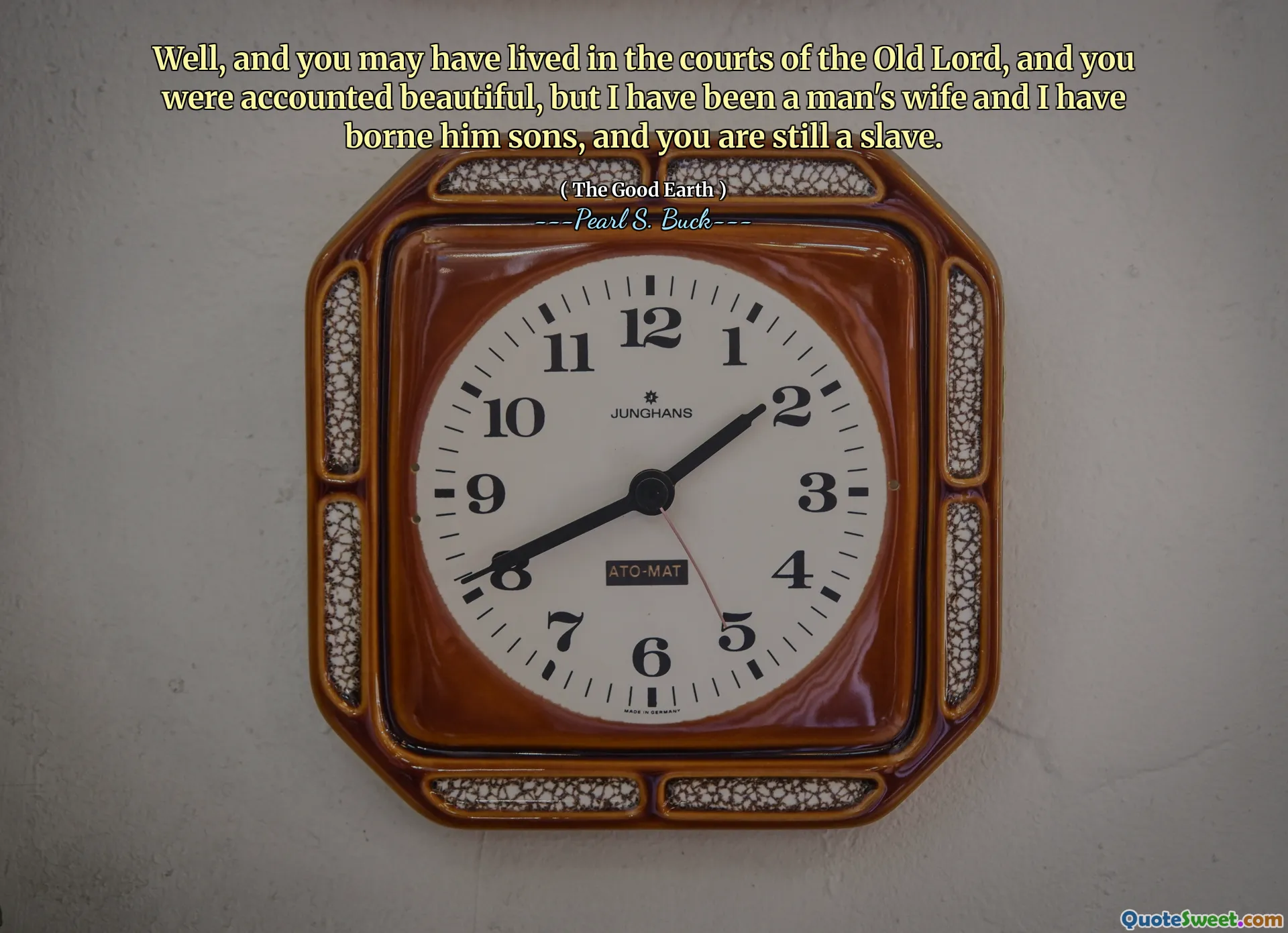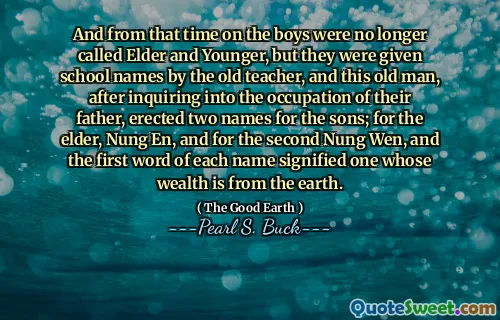
Well, and you may have lived in the courts of the Old Lord, and you were accounted beautiful, but I have been a man's wife and I have borne him sons, and you are still a slave.
This quote poignantly highlights the contrast between superficial status and genuine human experience. It underscores that societal beauty and status, such as living in royal courts or being admired for appearance, are superficial compared to the profound fulfillment found in personal relationships and the responsibilities that come with those connections. The speaker reflects on her own life — having been a wife and a mother, experiencing the labor, sacrifices, and emotional depths that come with raising children and maintaining a household. These roles, often undervalued in a hierarchical society, carry a legitimacy and dignity that superficial beauty or noble titles cannot confer. The statement also touches upon the inherent bondage of social or cultural constraints, emphasizing that despite external appearances or titles, true freedom and fulfillment are found within personal relationships and the responsibilities that come with them. The notion of being a 'slave' hints at the societal or cultural restrictions that keep individuals constrained, regardless of their outward status. This quote provokes reflection on where true worth lies — is it in external adornments and societal positions, or in the personal, often laborious, roles that define human dignity? It challenges superficial judgments and invites a deeper appreciation for the authentic human experiences that shape our identities. This reflection aligns with themes of humility, dignity, and the pursuit of genuine fulfillment over superficial accolades, themes central to literature like 'The Good Earth.'







